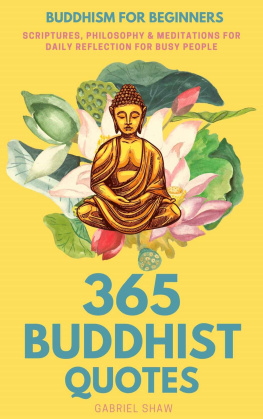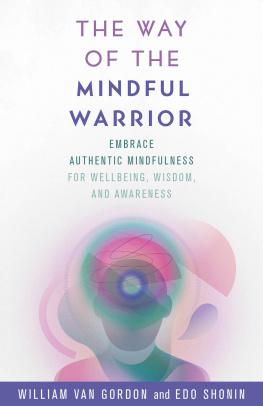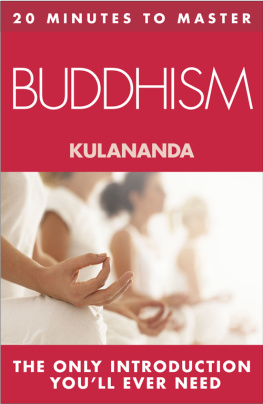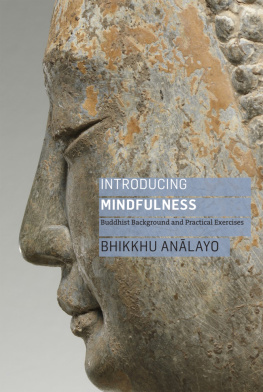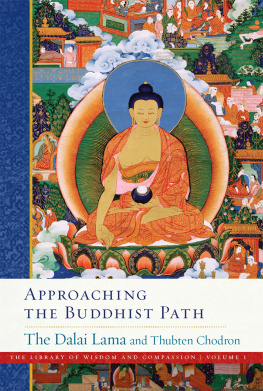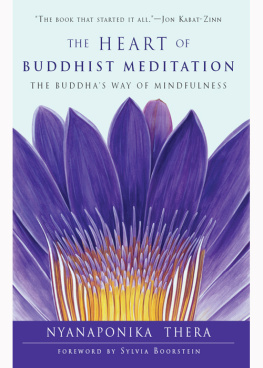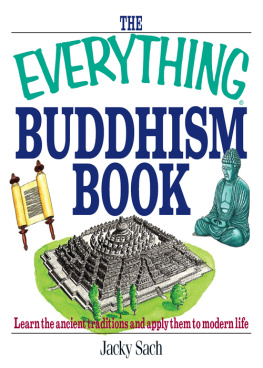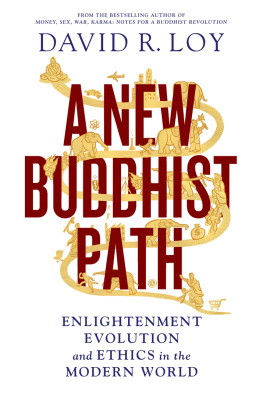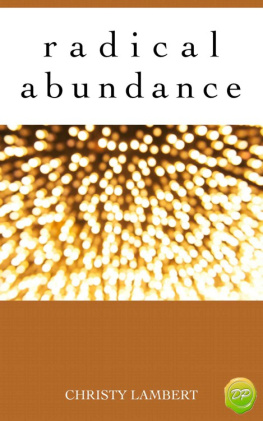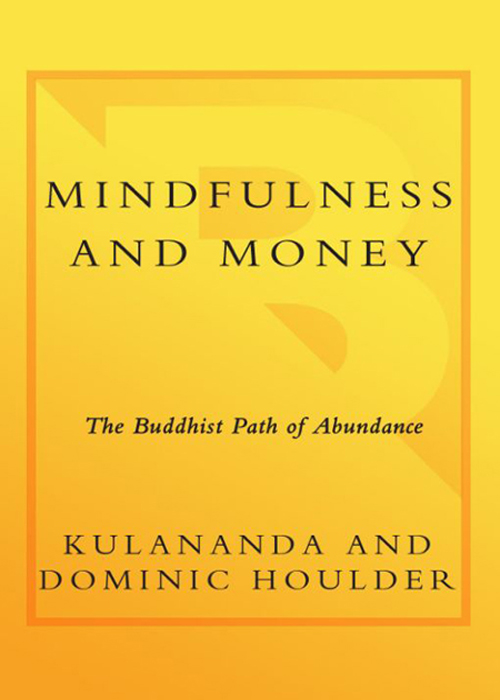
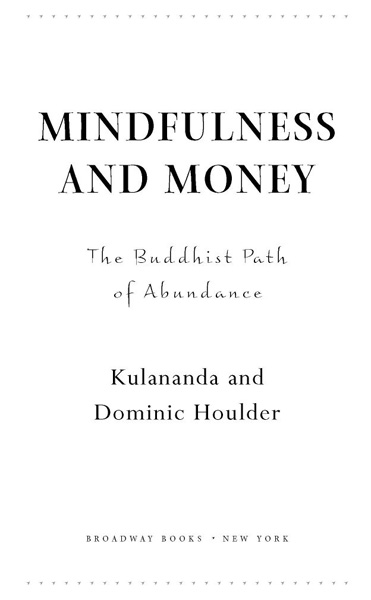
Table of Contents
Acknowledgments
This book draws extensively on the experience of Buddhists practicing across a broad range of traditionswhom we interviewed in the United States and Great Britain. Sometimes weve quoted from these interviews, other times we havent, but always they enriched our thinking and helped us to probe deeper into the subject. Our first thanks go to these generous people who were willing to share their lives with us: Norman Fischer, Ajahn Amaro, Bhikshuni Thubten Chodron, Kulamitra, Norma Coers, Viveka, Marc Lieberman, Karunadevi, Alan Senauke, Sudhana, Mel Ziegler, Betty Cook, Barr Rosenburg, Marc Lesser, Viradhamma, Les Kaye, Bill Scheinman, Colette Fanning, Dennis Schmidt, Fay Simpson, Vajraketu, Vijayamala, Ruchiraketu, Matthew Webb, Rosemary Tennison, Shantipala, Lokamdhara, Ed Piercy, Sahamati, Lokanatha, Vajrasamaya and Valerie Kenyon.
While visiting the States, Kulananda received kindness and hospitality above and beyond the call of duty from so many. Thank you, Blossom, Vajramati, Karunadevi and Tony, Viveka, Collette and Suvarnaprabha.
Reading and commenting incisively on a book in its evolving stages, while simultaneously encouraging its authors is a task that requires patience, rigor and kindness. Our special thanks go to friends who undertook this task: Ruchiraketu, Achara, Achalavajra, Jean-Paul Baillaud, John Campbell, Susanna Campbell, Lynda Gratton and Gay Haskins.
Our agent, Susan Lee Cohen, of Riverside Literary Agency, has been unfailingly supportive and enthusiastic about this project and our editor at Broadway, Kris Puopolo, always knew what we were driving at and helped to make it all clearer.
Behind the scenes there are those whose lives and work have given us the inspiration to write on the subject of mindfulness and money. These include our Buddhist teacher, Sangharakshita; Michael Ray, who has opened many students eyes to spirituality in business at Stanford Business School; and the late Peter Wilcox, shipowner, mentor and spiritual adventurer.
Preface
Let us briefly introduce ourselves. The two writers of this book live apparently very different lives. Kulananda lives in a Buddhist residential community in Birmingham, England, and has chosen to live with relatively little personal money. Dominic lives alone in an apartment in central London and is relatively wealthy.
Both of us teach, but right now we do that in rather different ways. Kulananda, the president of several centers of the Friends of the Western Buddhist Order, teaches primarily in that context, as well as through his writing. Dominic is an adjunct associate professor at the London Business School and also runs seminars and teaching programs for companies around the world.
Both of us have experience in the world of business. After taking his MBA at Stanford, Dominic worked as a management consultant with the Boston Consulting Group before becoming Director of Strategy at Blue Circle Industries in London, an international construction materials company. Kulananda founded Windhorse Trading, an import-export firm that today employs 100 people in Cambridge, England, all of them practicing Buddhists. It has annual sales of $15 million, makes profits of $1.75 million and each year gives away about $850,000 to various Buddhist charities. None of the executives at Windhorse earns more than those working on the warehouse floor. As a rule, everyone has agreed to a salary that covers rent, food, utilities and other expenses, six weeks of retreats each year, plus fifty dollars of personal spending money each week. Kulananda lives more or less the same way. Dominic, who does freelance consulting for major corporations around the world, earns considerably more.
Both of us are ordained Buddhists, members of the Western Buddhist Order, and our first working partnership came about when we set out to launch an ethical banking initiative for the Friends of the Western Buddhist Order in conjunction with Triodos Bank, an ethical bank with a branch in the UK. Working together on that project, we became friends. We always knew we would collaborate again sometime, although we wouldnt have guessed it would be on this book.
In our different ways, weve both had to engage quite deeply with the world of money, and to make sense of the way we go about earning and spending. There have been times, for both of us, when that has been a struggle. Even in the course of writing this book, weve discovered aspects of our relationships to the world of money that weve needed to clarify or explore further. Working together on this project has been very fruitful for both of us and we hope the results will be equally helpful to the reader.
Buddhist centers in Europe and America attract a wide range of people, who earn and spend money in many different ways. As they try to integrate their money lives with their Buddhist practice, they face the kinds of issues that this book addresses. But very few of these people are really poor. Our typical reader, we imagine, will be rather like those who attend Buddhist classes in western cities, and very few live in extreme poverty. We have not forgotten, however, that most Buddhists in the world do not enjoy the relative affluence of their western counterparts. Our own Buddhist organization, for example, was founded in the West, but many of its members live in India, where they mostly come from communities that were formerly regarded as Untouchable under the Hindu caste system. These fellow Buddhists are among the poorest and most socially excluded members of an impoverished country. As we see our Indian Buddhist friends living effective spiritual lives in such difficult circumstances, we recognize how fortunate we are to face the problems of earning and spending that our book describes.
To write this book, we have drawn not only on our own experiences but also on those of many others. Some people who have helped us with teachings and stories are identified by name in these pages, others appear in a fictional guise. And there are many whose advice and teachings are not directly represented, though they have deeply informed our exploration of the subject.
Just like us, some people whom youll meet in the book are well off, others have little that they can call their own. Whether rich or poor, they are all attempting to live a Buddhist life, and the examples taken from those lives have something to say to everyone, irrespective of wealth.
Within these pages, weve adopted a convention to distinguish characters whom weve invented purely for the purpose of illustration from those who actually exist. When you first encounter them in the text, we refer to real people either by a Buddhist name or by a first name and surname whether or not theyve been slightly disguised for personal reasons. Those who have Western first names only are fictional. Weve chosen to use Buddhist names when that is how the individuals are most often known in their working context. In many Buddhist traditions those who are ordained, whether living and working in the world or in the context of an established Buddhist institution, have been named to directly reflect their connection with Buddhism. Kulananda, for example, was given his name on ordination and uses it with his friends and family, as well as in his capacity as a Buddhist teacher. When he worked at Windhorse Trading, however, he was known to most of his suppliers and customers as Michael. Professor Houlder, on the other hand, remains Dominic in the broad context of his professional work and the friends, students and clients he has within it, but is Mahaprabha within the Buddhist community.
Next page


